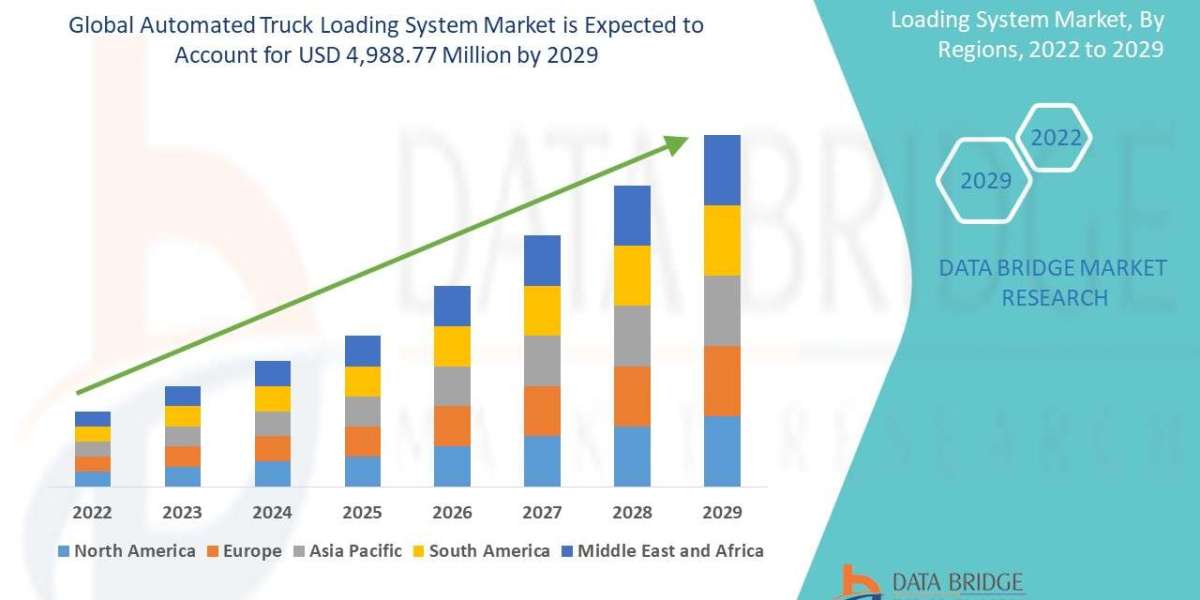Launching a food startup in the UAE is an exciting venture, but it also comes with a unique set of operational and technological challenges. From tight competition in Dubai's food scene to navigating logistics in Abu Dhabi, entrepreneurs need tools that ensure speed, accuracy, and customer satisfaction. One tool that stands at the center of smooth operations is the POS system for small business.
The Point of Sale (POS) system has evolved from being a mere billing counter interface to becoming a centralized management platform for modern restaurants. According to Statista, the global restaurant POS market size is projected to reach $26.2 billion by 2030, up from $10.3 billion in 2022. This surge in demand highlights how critical it has become for new food ventures to integrate reliable and scalable POS technology right from the start.
If you're entering the UAE's vibrant food startup ecosystem, this comprehensive guide will walk you through why a restaurant POS is vital, what features to look for, how to choose one, and which options are best tailored for Dubai and beyond.
Why Your Food Startup Needs a POS System
Starting a restaurant without a POS system in today’s competitive market is like navigating without a map. For food startups in the UAE, where the food and beverage industry is both fast-paced and customer-focused, having a POS system designed for small business operations is no longer optional—it’s essential.
One of the key benefits of implementing a POS system is streamlined operations. Instead of managing separate tools for billing, inventory, customer data, and sales tracking, a POS centralizes all your tasks under one platform. This means reduced errors, faster order processing, and better service delivery.
Moreover, a POS provides real-time insights into your sales and inventory, which helps in making informed decisions. For instance, if your POS shows a particular dish is selling out frequently, you can adjust procurement or pricing accordingly. The POS system also enables accurate tax management, which is crucial for staying compliant with UAE's VAT regulations.
With integrated payment options and multi-language interfaces (including Arabic and English), POS systems enhance the customer experience while allowing you to expand without technological bottlenecks. In short, it empowers startups with the tools previously available only to large chains.
Key Features to Look for in a Restaurant POS
Choosing a POS system can feel overwhelming due to the variety of available solutions. However, when tailored for UAE-based food startups, there are specific must-have features that make the investment worthwhile.
The first feature to consider is cloud-based functionality. This allows business owners to access their restaurant’s performance data from anywhere at any time. It becomes especially helpful for entrepreneurs managing more than one location or those who travel frequently for business purposes.
Another essential feature is mobile compatibility. In a market where customers value speed, using tablets or mobile devices for taking orders can reduce service times and improve order accuracy. Look for POS systems that work seamlessly across different operating systems.
Integrated payment gateways are also crucial. UAE consumers use a variety of payment methods, from cash to credit cards to mobile wallets. Your POS should accept multiple payment modes, automatically update records, and ensure secure transactions.
Furthermore, ensure your POS system includes modules for kitchen management, inventory tracking, and staff scheduling. A Kitchen Display System (KDS) reduces miscommunication between front-house and kitchen teams, ensuring accurate order preparation. Similarly, inventory alerts help minimize food waste and keep stock levels in check.
Reports and analytics should also be included. These allow you to study peak business hours, best-selling items, staff performance, and customer behavior. Armed with this data, you can implement targeted promotions or adjust your menu accordingly.
Top Restaurant POS Software Options in Dubai
When considering the best restaurant POS software Dubai has to offer, the market is filled with both international and regional contenders. Each comes with its own strengths, pricing models, and feature sets tailored to the food industry’s diverse needs.
1. SISGAIN's POS is well-known for its restaurant-focused features and offers a strong back-office management system. Its user-friendly interface is ideal for quick-service setups, and its built-in loyalty programs are perfect for retaining customers.
2. Lightspeed POS offers a cloud-based, scalable solution that suits both startups and multi-outlet restaurants. It supports multi-currency and multi-language capabilities, making it ideal for Dubai's cosmopolitan environment. Lightspeed also integrates with popular delivery platforms, an essential feature for food businesses in the UAE's growing online delivery market.
3. POSist is a UAE-friendly solution with features specifically tailored for the Middle East market. It offers modules for kitchen management, inventory, staff roles, and franchise management. With a presence in Dubai, the support is timely and locally relevant.
4. Square for Restaurants is popular among small food startups due to its ease of setup and transparent pricing. While it excels in front-of-house management, it may require third-party integrations for more advanced features like accounting or KDS.
5. Lavu POS is another solid choice that supports multi-language menus, offers excellent offline functionality, and includes a built-in KDS. It's particularly useful for quick-service and casual dining formats.
Each of these systems varies in cost, support, and advanced capabilities, so it’s crucial to compare their offerings side by side. Consider this table for a quick glance:
| POS Software | Best For | Offline Support | UAE-Based Support | Starting Price |
|---|---|---|---|---|
| Toast POS | Full-service restaurants | Yes | Yes | $49/month |
| Lightspeed | Multi-location cafes | Yes | No | $69/month |
| POSist | Local restaurants & chains | Yes | Yes | AED 249/month |
| Square | Small kiosks/startups | Yes | No | $0 (basic plan) |
| Lavu POS | Casual/quick dining | Yes | No | $59/month |
How to Choose the Right POS for Your Business Model
Every food business has its own operational structure, and the right POS system should align with your model. Whether you run a fast-paced kiosk, a cloud kitchen, or a dine-in bistro, the choice of POS will significantly impact your efficiency.
For quick-service restaurants or food trucks, you need a POS system that supports high-speed transactions, portable hardware, and integration with digital wallets. Features like mobile ordering and queue busting can help reduce wait times and increase turnover.
For full-service restaurants, features like table mapping, server assignments, and detailed billing (split checks, item modifiers) are essential. A kitchen display system helps synchronize orders and minimizes human error.
If you’re launching a cloud kitchen, focus on integrations with online ordering platforms, delivery aggregators, and CRM tools. Your POS should enable centralized control of multiple virtual brands and kitchens from a single dashboard.
Budget is another deciding factor. While startups may lean towards free or low-cost solutions, it’s important to consider the long-term value of having robust analytics, support, and upgrade options. A scalable POS ensures you won’t need to switch systems as you grow.
The final factor is user training and support. Make sure the provider offers onboarding and 24/7 support, ideally based in or responsive to the UAE timezone. Even the best software is ineffective without proper implementation and support.
Case Study: A UAE Startup That Got It Right
Meet "Falafel Junction," a fast-casual dining brand that launched in Sharjah in 2023. With limited capital but big ambitions, the founders needed a solution that could streamline operations, manage online orders, and handle dine-in traffic simultaneously.
Initially, they managed orders manually, which led to long wait times, missed items, and poor customer reviews. Within two months, they adopted POSist, a restaurant POS software Dubai-based startups often recommend for its local support and intuitive interface.
After implementing POSist, order errors dropped by 60%, while the kitchen-to-table time reduced by 35%. The POS also helped them integrate with delivery platforms like Talabat and Zomato, increasing their reach and automating online orders.
Their analytics dashboard revealed peak sales times and high-performing menu items, allowing them to optimize labor schedules and run targeted promotions. Today, Falafel Junction is looking to expand with the same POS infrastructure, demonstrating how the right tech choice can fuel real-world growth.
Cost Breakdown: What Should a Startup Expect to Pay?
Understanding the cost structure of a restaurant POS is crucial for budgeting. Costs vary based on software, hardware, support plans, and added features. Most POS systems follow a subscription-based model, charged monthly per terminal or location.
Here are common cost components:
Software Subscription: Typically ranges from $29 to $99/month per terminal. Advanced plans with analytics or integrations cost more.
Hardware: Basic setups with a tablet, printer, and card reader can cost AED 2,000 to AED 5,000.
Setup and Onboarding: Some providers charge an additional fee (AED 500 - AED 1,500) for implementation and training.
Add-ons: Integration with CRM, delivery platforms, or loyalty programs may come at extra cost.
Startups should avoid the temptation to go for free systems that lack critical features or data security. Instead, opt for value-based pricing that matches your business goals.
Bottom Line: Choosing the Right POS Saves You Time & Money
Implementing a reliable POS system is not a luxury but a necessity for UAE food startups aiming for long-term success. It ensures seamless coordination between the front-of-house and back-of-house, improves service quality, and provides real-time insights to guide your decisions.
Modern restaurant POS systems are far more than billing tools. They act as command centers, allowing you to manage inventory, track staff, process payments, analyze data, and even build customer relationships. With competition in the UAE’s food industry heating up, having the right POS system is a strategic advantage.
Ultimately, the goal is to reduce manual workload, increase efficiency, and deliver a delightful dining experience. Whether you’re running a quick-service counter in Abu Dhabi or a sit-down spot in Dubai, the right POS can elevate your operations from startup to standout.
FAQs
What is the best POS system for a small food business in UAE?
POSist and Lightspeed are two of the most recommended POS systems for small UAE food businesses, offering cloud access, mobile ordering, and local support.
How much does restaurant POS software cost in Dubai?
Prices vary from AED 100 to AED 500 per month depending on features, support, and terminal count. Hardware and integration may require additional investment.
Can I use a restaurant POS system on a tablet?
Yes, most modern POS systems offer mobile or tablet-based functionality, which is ideal for startups seeking portability and cost-efficiency.
Do POS systems in UAE support Arabic and English?
Many POS systems in the UAE, like POSist and Lavu, offer multilingual interfaces including Arabic and English, enhancing usability for diverse teams.







